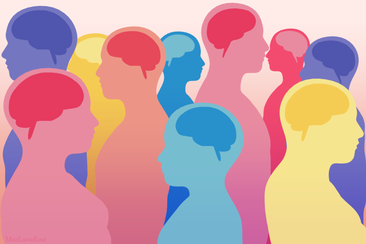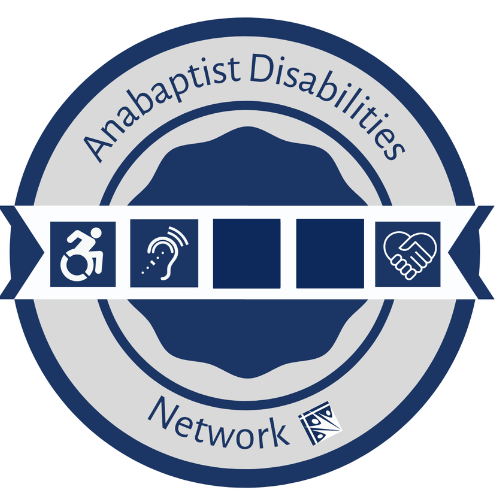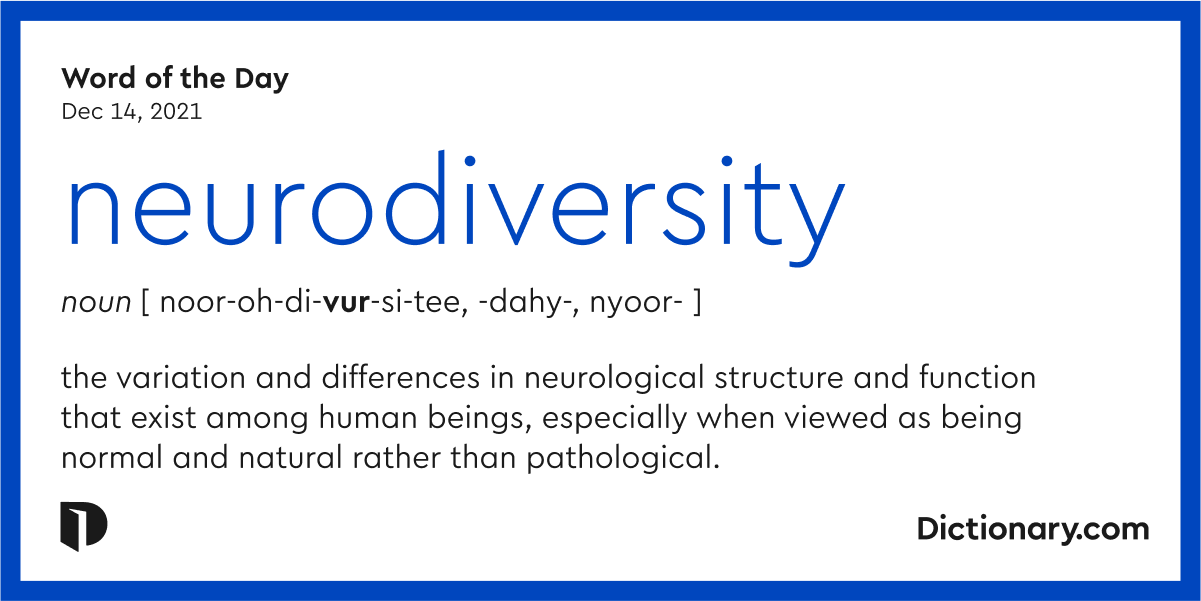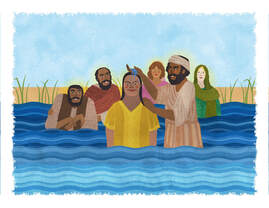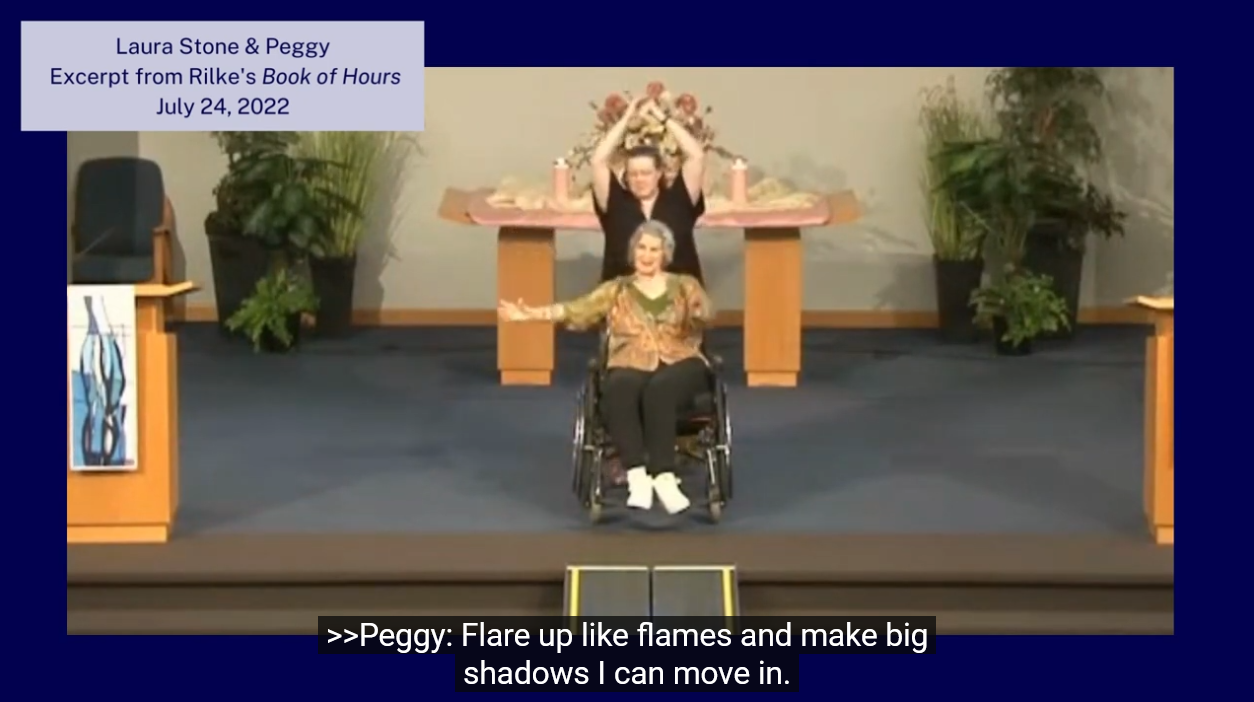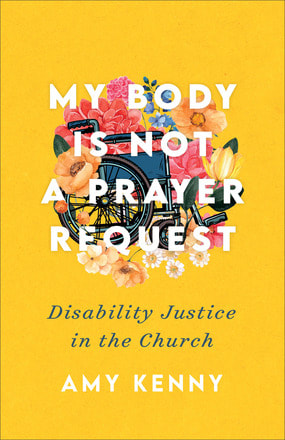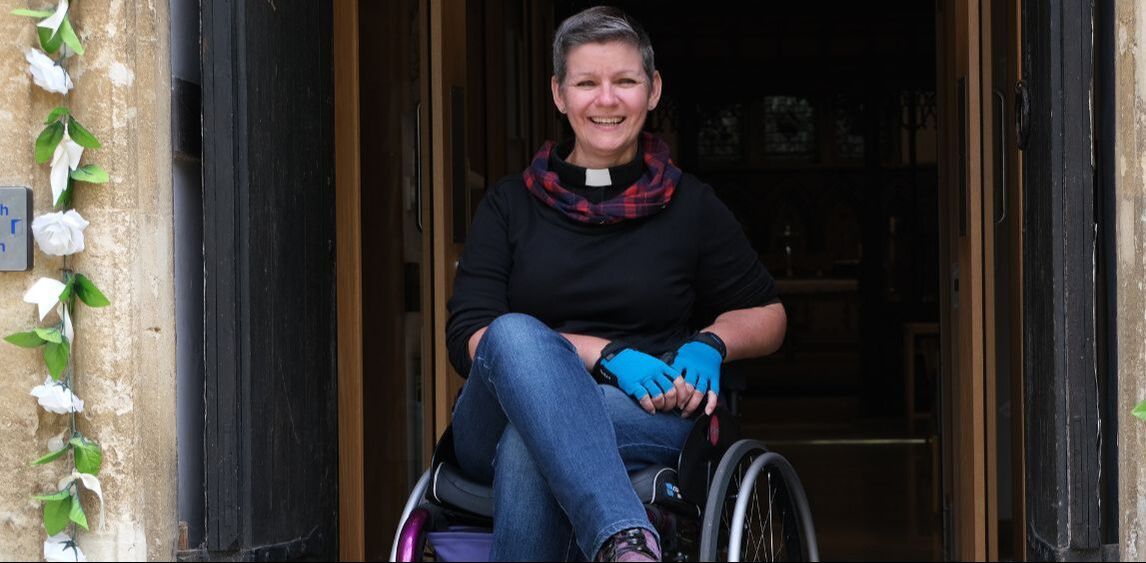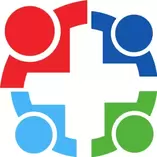Salford is a Community of Belonging.
|
Salford Mennonite Church strives to be a community where all are able to belong, regardless of ability. This desire grows out of the welcome Jesus offers to all of us, as expressed in our Welcome Statement.
This page will continue to evolve as we learn - so please check back in! |
Following assessment by the Anabaptist Disabilities Network in three categories, Salford has earned the Mobility, Hearing, and Support emblems. This means our building is fully mobile accessible, accessible for those who are hard of hearing or experience hearing loss, and provides support for people with disabilities and their families in many ways. Also available are the Vision and Sign Language emblems. There is much work to be done!
|
Salford's Accessiblity Ministry Team exists to facilitate and resource an environment of inclusion and belonging among diverse needs, particularly for people who are disabled and neurodiverse.
...to facilitate and resource: we don’t have all the answers, but we connect people with one another and with experts (people with disabilities, family members, people with education about disability) who can help us grow
...an environment of inclusion and belonging: The church is God’s, not ours, and so rather than the church being the “in-crowd” welcoming outsiders, we know that we all receive our belonging from God and seek together to foster a place where all are included
...diverse needs: we all have different bodies and brains, unique abilities and needs. And so, accessibility and belonging are for all of us.
...people who are disabled and neurodiverse: Barriers to accessibility disable some people. In our society most spaces, including churches, are more accessible for the “non-disabled and neurotypical:” those whose brains and bodies are the socially expected norm. Therefore we pay special attention to fostering belonging for those who experience the greatest barriers to accessibility.
...an environment of inclusion and belonging: The church is God’s, not ours, and so rather than the church being the “in-crowd” welcoming outsiders, we know that we all receive our belonging from God and seek together to foster a place where all are included
...diverse needs: we all have different bodies and brains, unique abilities and needs. And so, accessibility and belonging are for all of us.
...people who are disabled and neurodiverse: Barriers to accessibility disable some people. In our society most spaces, including churches, are more accessible for the “non-disabled and neurotypical:” those whose brains and bodies are the socially expected norm. Therefore we pay special attention to fostering belonging for those who experience the greatest barriers to accessibility.
"Start with the people who are present"
"Respecting neurodiversity means not starting with an assumption of what people want or need. Christian discipleship always happens within a specific context. Start with the people who are present and adjust the practices accordingly. It is more complicated than a standard way of discipleship but it is a way that respects that different ways God has created us." - Stephen Bedard, DisabilityAndFaith.org
|
The Accessibility Ministry Team started with the resources in front of us: we began by listening to Salford members with disabilities and their families about their needs and hopes. In response we have begun making adjustments to benefit individuals and also helping the whole congregation be a place of belonging.
A large part of our work is congregational awareness: helping the church to become a space where the variety of human bodies are respected and all can meet their need for belonging and spiritual growth.
Here are links for more information for all:
Anabaptist Disabilities Network
Anabaptist Disabilities Network (ADN) connects and supports people who have disabilities, their families, and faith communities to create a culture of belonging for everybody. Click the name to view an introductory video, regular blog posts, and an accessible Anabaptist baptism and membership curriculum.
They also have a Resources Page with book and curriculum reviews for further learning. |
"Wounded and Whole" by Laura Stone
In this sermon, Laura Stone presents a radical reinterpretation of healing and wholeness and calls us towards a reimagining of what it means to accept our own disabled bodies. She says, "If you want to become comfortable with people with disabilities, with dementia, with unkempt bodies, addicted bodies, abused bodies, oppressed bodies, first, get in touch with your own limits. Really know your own wounds. Look at them until you feel the urge to look away, then gather courage and look some more, until you see the love of God shining through them." Following her sermon, Laura and her friend Peggy embody a poem from Rainer Marie Rilke's Book of Hours, leaving us with the promise that God holds our hand as we walk through the night.
|
My Body Is Not a Prayer Request: Disability Justice in the Church by Amy Kenny
This book is a quick and engaging first read which helped Salford's Accessibility Ministry Team understand disabled perspectives and disability theology better.
Amy Kenny says it is time for the church to start treating disabled people as full members of the body of Christ who have much more to offer than a miraculous cure narrative and to learn from their embodied experiences. Kenny, a disabled Christian, reflects on her experiences inside the church to expose unintentional ableism and cast a new vision for Christian communities to engage disability justice. Offering personal storytelling, fresh and compelling writing, biblical exegesis, and practical application, this book invites readers to participate in disability justice and create a more inclusive community. |
The Diocese of Oxford: A Wealth of Resources
The page is titled "Everything You Need to Know About Disability and Inclusion in the Church" and that about sums it up. It includes:
|
All Belong: Center for Inclusive EducationAll Belong has services for churches working on inclusion, including a Theology of Inclusion.
Also see this guide: Best Practices for Building Belonging in Congregations: Ideas and Resources No matter what role you fulfill, you can be a part of creating a community of belonging in our congregation for persons of all abilities. To get started, look up your role in the congregation. |
Disability Justice Second Hour Series February 2024
Laura Alderfer, leader of the Accessibility Ministry Team, lead a four-week series based on the book My Body is Not a Prayer Request by Amy Kenney. The slides are available here:
|
| ||||||||||||||||||||||||
|
|
"Through the Roof" A sermon by Accessibility Ministry Team Leader Laura Alderfer, on Mark 2:1-12 and our call to remove barriers to help nurture the belonging that each person already has.
|
Contact Us
To reach out to a member of the Accessibility Ministry Team, contact the church office.
The Peace PlaceA basement classroom is now a short-term calm down/regulation space during Sunday School and other times under adult supervision.
There are guidelines on the door and inside to explain how it is to be used, but one key thing is for the user to turn over the hourglass thermometer to take 5 minutes to be able to get the sensory input or self-regulation they need to rejoin participation in worship or Sunday School. It is intended for elementary age and up. Parents can take one child at a time to use the space during worship, too. |
|

